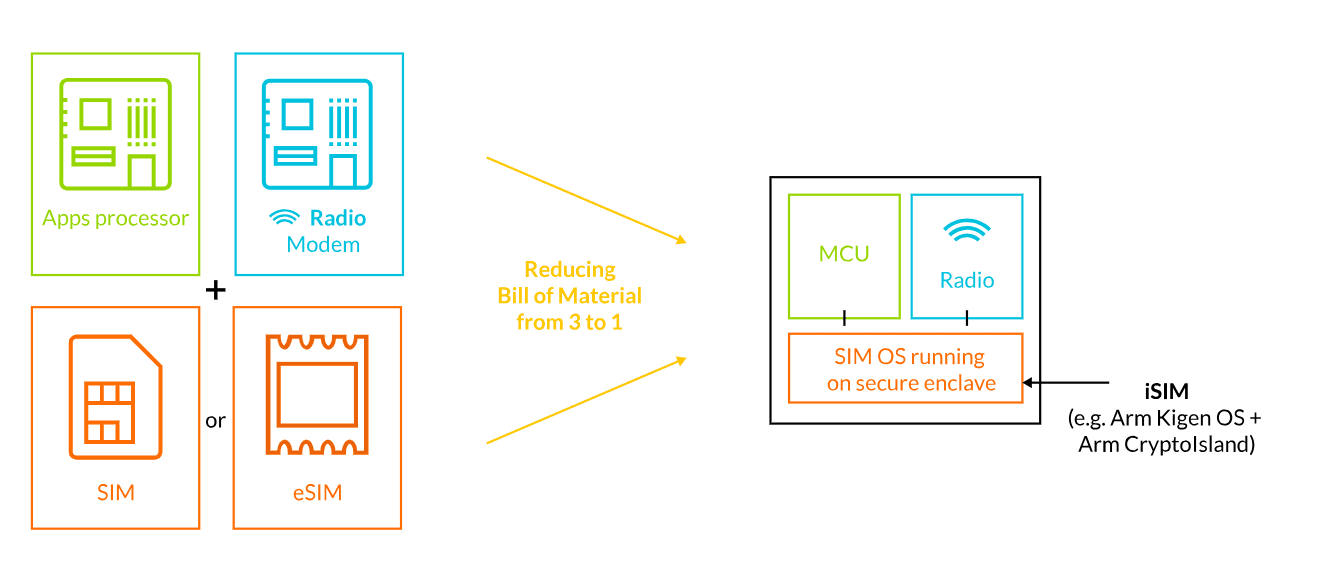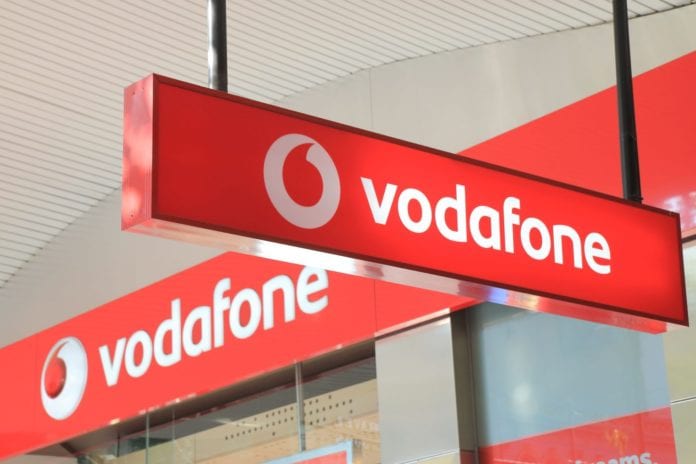Chip-design company Arm has appointed Vodafone as its global ‘bootstrap’ provider for NB-IoT and LTE-M devices based on its new line of integrated SIM (iSIM) designs.
Emerging iSIM technology provides enterprises with a programmable, connected system-on-chip design that eliminates the need for traditional SIM cards. The Arm-Vodafone tie-up means all IoT chips based on Arm designs will default to the Vodafone network when they are switched on, and fall back to the Vodafone network in case of connectivity outages.
The deal covers the planet, and will see Arm-based IoT chips, and notably LTE-M and NB-IoT chips, connected to Vodafone’s roaming partners in markets where it does not have local operations. New innovations around SIM cards, including embedded SIMs (eSIMs) – rewritable and fixed SIM card inside devices – seek to bring simplicity to the market. A feature of Mobile World Congress (MWC) 2019 in Barcelona this week was the drive for greater simplicity in the rangey IoT sector.
Arm’s KigenTM iSIM seeks to address this, for devices that will be developed and deployed at scale, bringing reduced cost, faster time-to-market, and therefore faster time-to-value for IoT providers. “This allows customers to securely deploy, remotely provision and manage massive numbers of IoT devices across global markets at a significantly lower cost and complexity,” said Vodafone in a statement. .
Phil Skipper, the company’s head of business development for IoT, explained: “The SIM will disappear, and become a piece of software in silicon in the microcontroller [unit] (MCU) in the device. When it sparks up, it needs to connect – that is the bootstrap – [in order to be assigned to a network provider]. If the device fails, it also has to drop back to a carrier.”
He added: “It will drive business, and take the breaks off NB-IoT and Cat-M. It changes the way the supply chain operates – as it is far simpler to connect devices – and it will make devices cheaper, ultimately.”
Dipesh Patel, president of Arm’s IoT services group, said: “Fragmentation, security and cost are three limiting factors in IoT, and we believe a strong partner ecosystem is critical in solving these challenges. This partnership will enable global enterprises to significantly reduce the cost and complexity of securely connecting their IoT devices at scale so that they can quickly drive real value and actionable insights from their IoT data through our Pelion IoT platform.”
Stefano Gastaut, director of IoT at Vodafone, said: “Vodafone has been focused on building its global IoT platform & connectivity, to enable the fast deployment of IoT services. Working together with Arm, we will combine the strengths of both companies to benefit our customers and break down the barriers, such as cost and complexity, which are hindering the adoption of IoT for many.”
Joint iSIM solutions from Arm and Vodafone will be available in the first quarter of 2020, they said.


